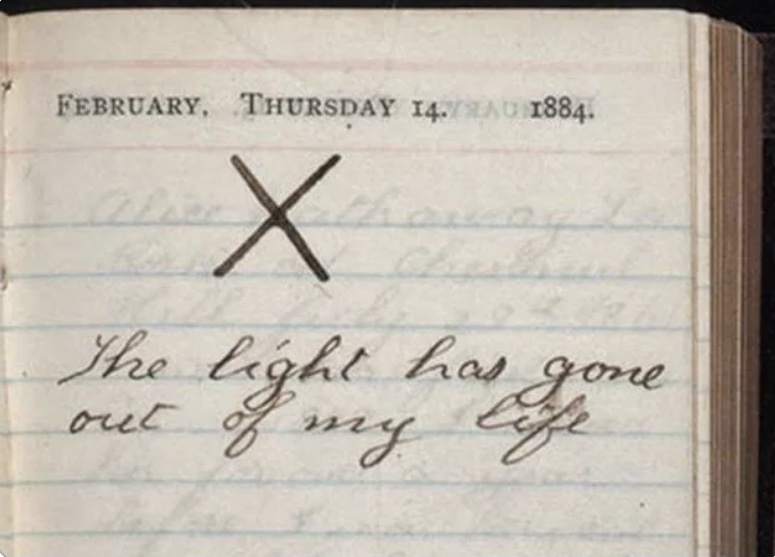As human beings, we go through many experiences in life, each offering a chance to learn and grow. Our brains are geared toward learning. Think of the joy you felt when learning a new skill, particularly one that you pictured yourself enjoying. Maybe it was your first solid hit to the outfield as a little leaguer. Maybe it was learning to cook a meal or play the piano. Learning is a lifelong experience. It’s not just for our enjoyment, sometimes it’s for our survival.
When we lose something or someone we love, we must learn new skills. Experiencing grief is no fun walk in the park. It has stages. It has procedures we follow whether we realize it or not.

One way many folks deal with loss is to retreat into nature. Our natural world is a great source of healing. We can shift our inward pointing feelings to something grand and glorious located outside ourselves. This is what Theodore Roosevelt did on the worst day of his life: February 14, 1884.
Roosevelt, a young New York state assemblyman, was attending the legislature in Albany when he got word his mother was deathly ill with Typhoid Fever. His mother was his only parent at the time. His father lost the battle with stomach cancer at the age of forty-six.
Teddy had always been a bright young man, but as a boy, he was sickly. Among other things, he had asthma. His father told him that he would have to work hard on his body so he could pursue life. Teddy, under his father’s supervision, worked hard on his physical fitness to compensate for his illnesses. He grew close to his father and succeeded in overcoming his physical limitations.
When his father died, Teddy took to studying the natural world. He considered himself to be a naturalist and spent countless hours at the Museum of Natural History in New York. He went to Harvard and set his sights on politics after graduation. He married Alice and started a family.
While in Albany, his mother watched over Alice as she was pregnant. Alice delivered a baby girl, and, for Teddy, the happiest day of his life soon turned to the worst time of his life. Two days after the birth of his daughter, his mother suddenly died of Typhoid Fever. A mere two hours later, Alice died from a kidney disease. He lost his mother and his wife on the same day: Valentine’s Day 1884. His journal notes the date with a big, black “X”, and a note that read, “The light has gone out of my life.”

Teddy left his new daughter in the care of his sister, resigned from the legislature, and fled to South Dakota. In his grief, he got as far away from New York City as possible. He became a cattleman and a sheriff. He learned new skills. He learned how to keep the peace and raise cattle in a hostile weather environment. After two years, he returned to his home in the city. The things he learned in grief would turn out to benefit all of us. His appreciation of nature and wildlife can be seen today via the national park system he created. As President of the United States, he showed a physical and mental toughness to our enemies and to those who would abuse women and children in the factories of the Industrial Revolution.
Although grief is universal, the way we handle it is individual and personal. The ability to turn one’s focus from inside to outside was Roosevelt’s key. He returned to the natural environment he considered to be his first love. Above all else, he was a naturalist. God’s creation is there for us in our hardest times. Don’t forget to use it.
